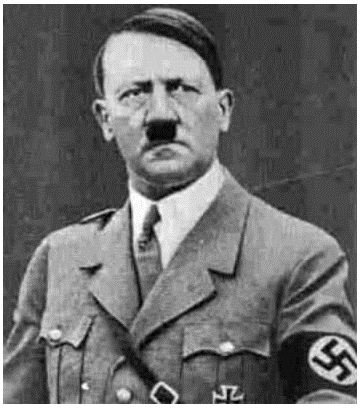World War II: Why It Started, Who Was Involved, and How It Ended
What were the causes and events that lead up to the Second World War? It’s safe to say that there were still many unresolved issues and nationalistic tension present from the First World War, and as with all wars, power, control, and pursuit of resources were the presiding forces and reasons why World War 2 started.
Because of the impact of the war, life became a hardship for so many. Money was tight, items were rationed, and most importantly, the people they loved had to leave home to fight the war. Why did all of this chaos and devastation happen, and could it have been prevented?
It’s safe to say that World War 2 could not have been prevented. Power-hungry nations were everywhere, bridled with the intent of conquering more land to expand their empires, and unwilling to relent in their pursuit for greatness.
With the idea of creating a new Roman Empire, Italy’s Benito Mussolini led a plan which set in motion the invasion of Ethiopia in October 1935, Albania in early 1939, as well as a march into Greece shortly after.
Japan in it’s own right had become a power-hungry nation as well. Their quest for domination, as it pertains to WWII, began with the invasion into the Republic of China in 1937.
Because of World War I, many nations lost a significant amount of land in their territory. Finland and Thailand are two such examples and in feeling a need to regain what they lost, joined in the war. Also in hopes of reclaiming what they felt was rightfully theirs, Hungary, Romania, and Bulgaria decided to align themselves with Germany, who had been their ally in the first world war. Despite Germany being a stronghold on its own, aligning with these countries helped Nazi Germany become an even stronger force.
Adolf Hitler, The Leader of Nazi Germany
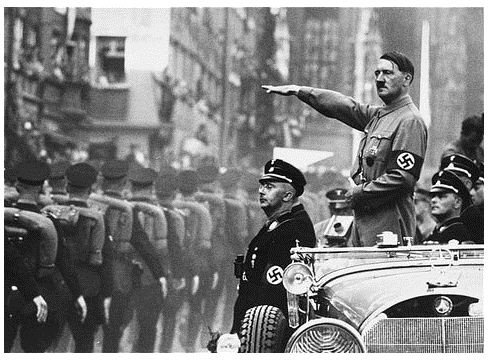
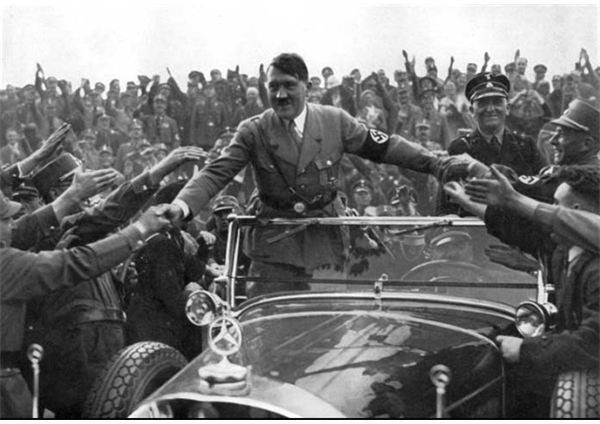
But who really caused the most damage to the world? None other than Adolph Hitler, the leader of Nazi Germany, who was also believed by some to have been the second anti-Christ described in the bible. (The first anti-Christ was thought to be Napoleon Bonaparte.) Hitler was a ruthless man, hellbent on broadening his vision, and creating an environment which he thought was right for the world. Due to the massive unemployment from the Great Depression, Germans were drawn to Hitler and his promises of a new future, which allowed him to attain great power and rise through the ranks quickly. He is known to be the primary reason why World War 2 started, as the war was universally accepted to have begun in 1939 when Germany invaded Poland. Hitler’s power continued to grow, and it was soon discovered that his goal was to establish global domination, which was to start with his reign of terror into Europe, and then later into other parts of the world. Because of his desire to conquer Europe, France and most of the countries of the British Empire and Commonwealth had now declared war on Germany. This time period is widely accepted as the official start of World War II.
The U.S. Enters the War
Japan also saw this outbreak of war as an opportunity, for they also hoped to expand their power and take over other areas of the world to provide more raw materials for Japan’s economy. The Japanese forced the United States to enter World War II when they were hit with a surprise ambush. Although the U.S. officially entered the war on December 8, they essentially started World War II the night the Japanese tried to destroy the United States Pacific Fleet at anchor when they attacked Pearl Harbor on December 7, 1941. Within days, the United States had a secondary opposition to worry about, as the Germans had now declared war on them as well.
The Destruction of Pearl Harbor
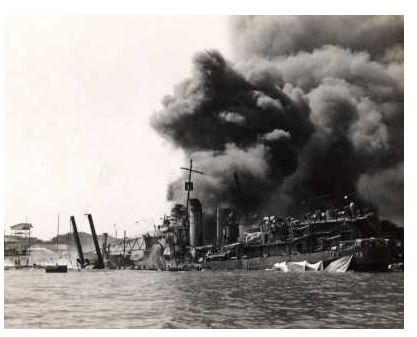
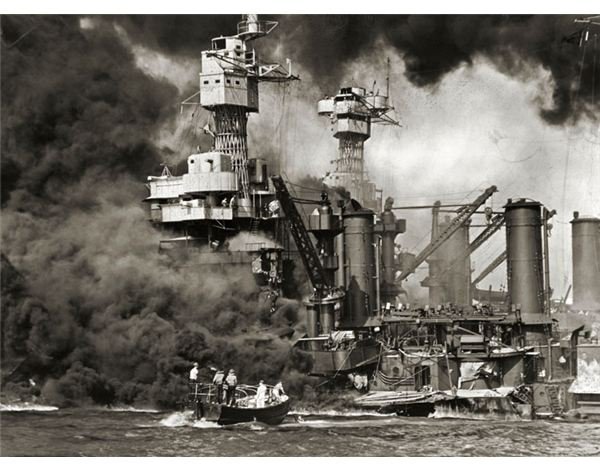
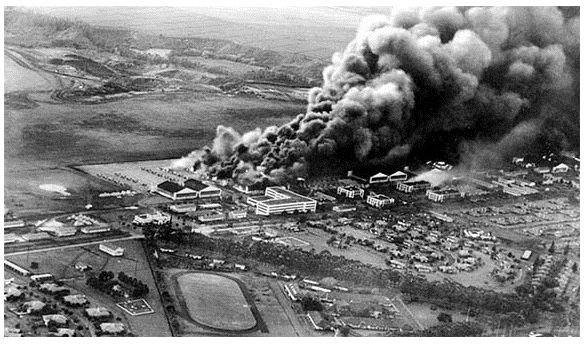
The War Finally Comes to an End…
World War II began in 1939, and lasted until the year 1945, when the Germans were conquered by the Americans, the British, and the Russians during the month of May. Along with the defeat of the Germans, Italian leader Benito Mussolini’s reign of terror ended as well, when on April 29 he was captured by Italian partisans, who then executed him. When Adolf Hitler saw the decline of the Nazis’ power, he declared to his cabinet members that his life work had become a failure. He refused to continue leading the fight and, on April 30, 1945, committed suicide. Japan sustained themselves in the war a few months longer until they had no choice but to surrender in September of that same year. Finally, after six years, the war had come to an end.
Celebrating the End of the War
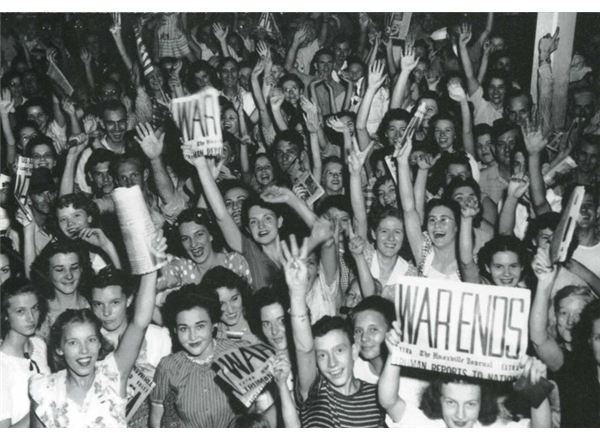
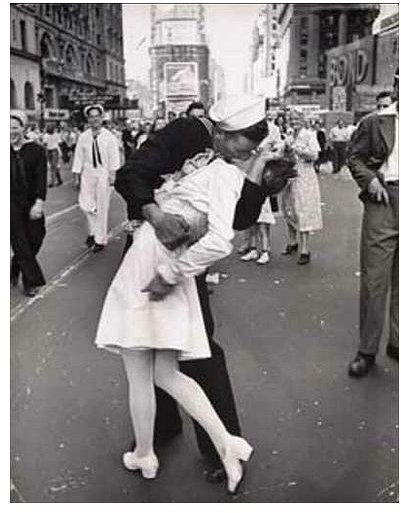
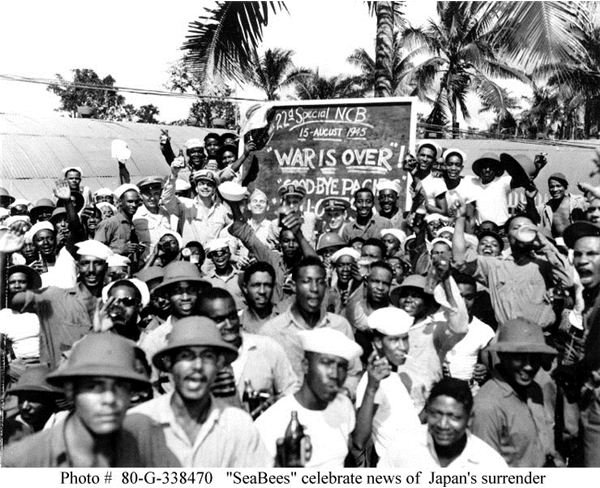
Resources
Adamthwaite, Anthony P (1992). The Making of the Second World War.
Weinberg, Gerhard L. (1995). A World at Arms: A Global History of World War II.
Kantowicz, Edward R (1999). The Rage of Nations.
The Complete Idiot’s Guide to World War II, Second Edition.
